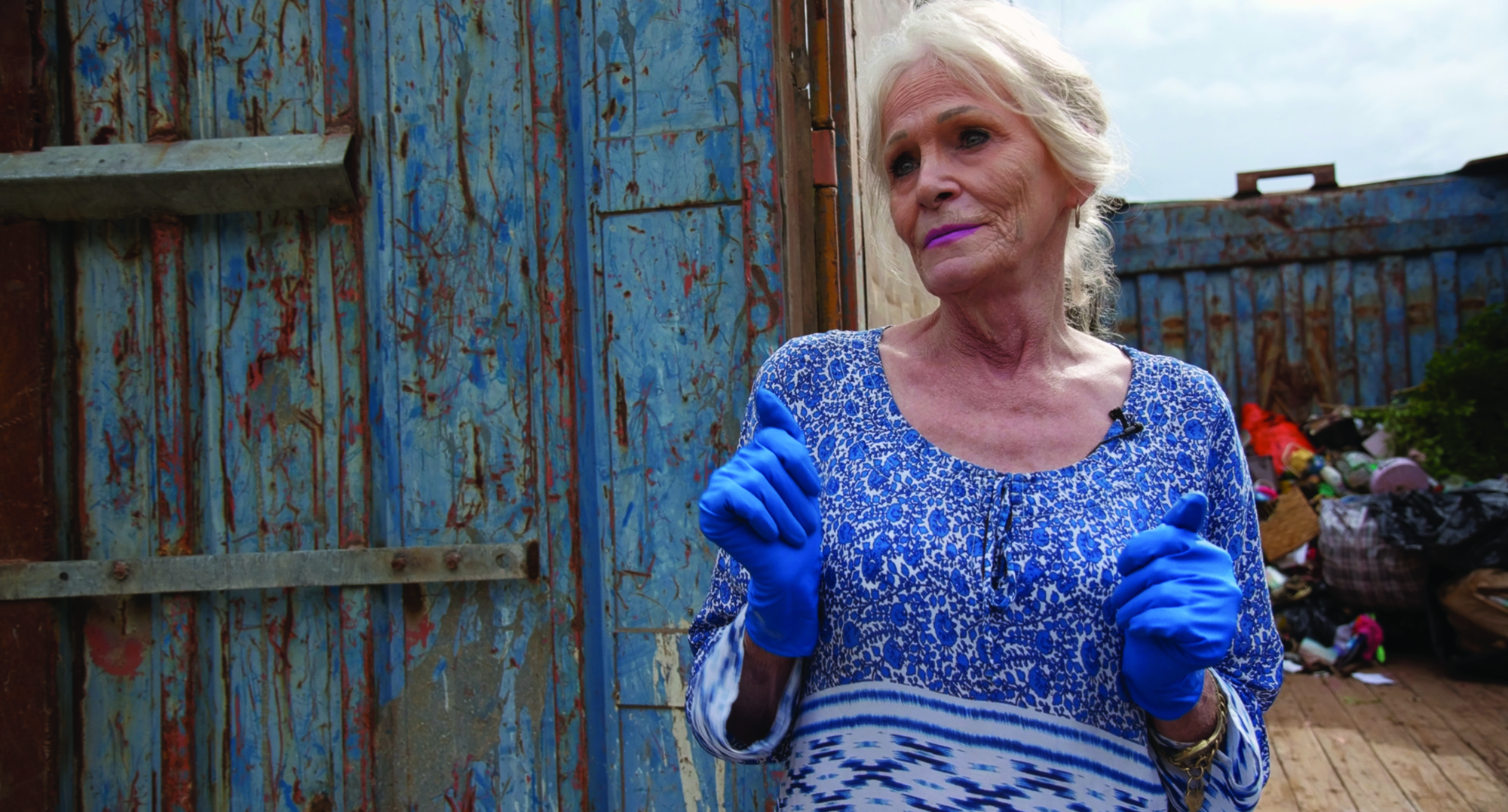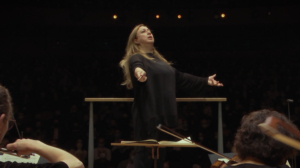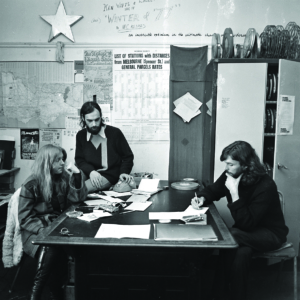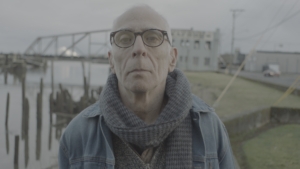Exploring the fascinating life of Sandra Pankhurst and the company she founded, Specialised Trauma Cleaning services (STC), Clean (Lachlan McLeod, 2021) is a worthy companion to The Trauma Cleaner, Sarah Krasnostein’s award-winning, best-selling biography of the film’s subject.[1]Sarah Krasnostein, The Trauma Cleaner: One Woman’s Extraordinary Life in Death, Decay & Disaster., Text Publishing, Melbourne, 2019. In the documentary, Pankhurst’s story is primarily captured via extensive interviews from the last few years of her life.
Suffering from a lung condition after years of working with harsh chemicals, Pankhurst was no longer as hands-on within the business at the time of filming. Nonetheless, she – along with friends, colleagues and a selection of STC clients – offered McLeod open access to her life.[2]Lachlan McLeod, ‘Director’s Statement’, Walking Fish Productions & Goodthing Productions, Clean press kit, 2022, p. 12. As such, the film’s structure pivots between recounting the story of her life and following STC on cleaning jobs, and these facets are eventually tied together through an illumination of the links between trauma and tragedy – and of how approaching and processing each of these can shine a light on human frailty and resilience. As McLeod says of the film’s structure and themes,
After many iterations we used Sandra’s journey as the backbone of the story and figured out how everything else would fit around her. In the end, I think this approach drew out some really nice parallels between everyone and highlighted Sandra’s own Mantra[,] which is ‘trauma can happen to anyone’.[3]Lachlan McLeod, quoted in Jason Whyte, ‘SXSW 2022 Interview – Clean Director Lachlan McLeod’, Get Reel Movies,11 March 2022, <https://getreelmovies.com/sxsw-2022-interview-clean-director-lachlan-mcleod/>, accessed 24 July 2022.
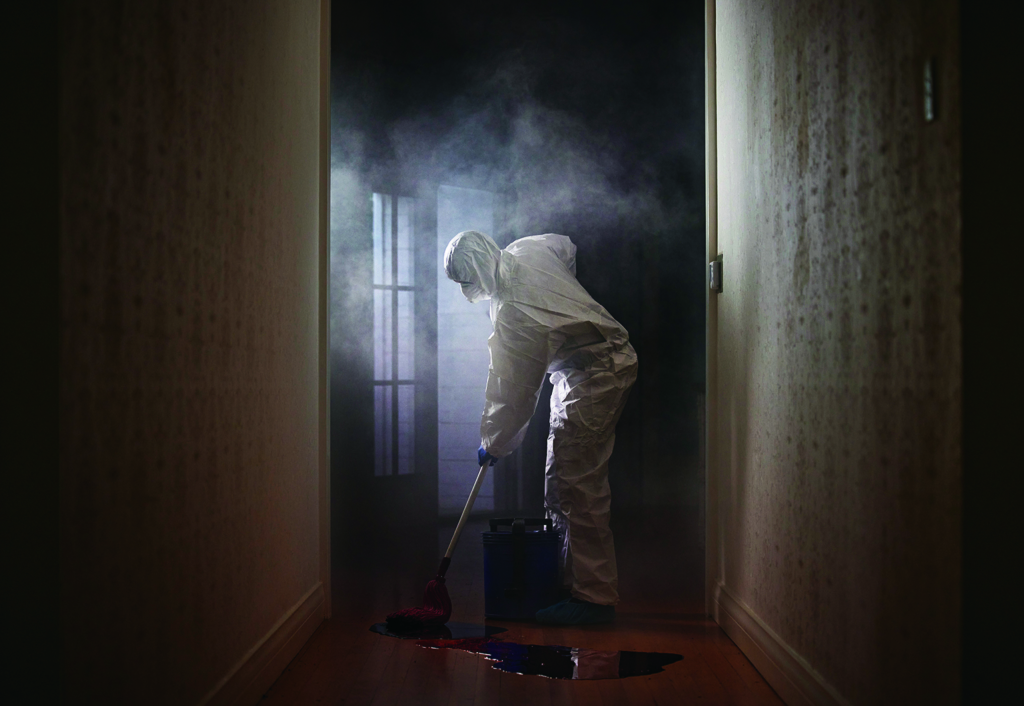
Visual journalist Almudena Toral defines trauma as ‘the psychological wound that stays [and …] affects our body, our mind, our memory and our sense of safety in the world’, and goes on to say that storytelling and community connection can aid its healing.[4]Almudena Toral, ‘Documentary Films That Explore Trauma – and Make Space for Healing’, TED, 24 May 2021, <https://www.ted.com/talks/almudena_toral_documentary_films_that_explore_trauma_and_make_space_for_healing>, accessed 10 July 2022. Through the stories it tells, and its core focus on Pankhurst’s life, Clean shows how essential human connections are in processing trauma.
Although the film follows the STC team to one murder/suicide cleaning job, and others like it are discussed, it is significant that the documentary’s focus is shifted away from such salacious stories and instead predominantly directed towards jobs with living clients. This choice may defy audience expectations somewhat, but what emerges in the film as a result is a stronger link to the overall theme of processing trauma. Clean follows the STC crew on a few bookings involving hoarding, which psychologist Michael Kyrios defines as ‘the persistent difficulty discarding or parting with possessions and their ultimate stockpiling – regardless of their value’.[5]Michael Kyrios, ‘When Stuff Gets in the Way of Life: Hoarding and the DSM-5’, The Conversation,24 October 2012, <https://theconversation.com/when-stuff-gets-in-the-way-of-life-hoarding-and-the-dsm-5-10074>, accessed 21 July 2022. Hoarding disorder is now listed in the latest edition of the Diagnostic and Statistical Manual of Mental Disorders (DSM), which Kyrios sees as a positive step in developing research and treatments. Recently, it has been estimated that over 1 million Australians meet the DSM criteria for the condition, and hoarding behaviour is reported to contribute to up to a quarter of residential fires, as well as presenting risk of other injuries.[6]See Melissa Norberg & Jessica Grisham, ‘When Possessions Are Poor Substitutes for People: Hoarding Disorder and Loneliness’, The Conversation,12 June 2018, <https://theconversation.com/when-possessions-are-poor-substitutes-for-people-hoarding-disorder-and-loneliness-97784>, accessed 21 July 2022
Although the film follows the STC team to one murder/suicide cleaning job … it is significant that the documentary’s focus is shifted away from such salacious stories and instead predominantly directed towards jobs with living clients.
The first hoarding clean-up depicted in the documentary, which Pankhurst herself attends in a consultative capacity, involves a client named Cheryl. While instructing her staff on how to approach the onerous cleaning tasks required, Pankhurst mentions that such situations need to be ‘dealt with in the most generous and caring ways possible’, an approach shown in practice when she responds to the apology Cheryl offers by emphatically stating that it is unneeded, as well as when she calmly talks with her about personal items among the disarray that could be kept. The two women later share in the joy of a family photo album that has been found, and Cheryl opens up about how her life ended up this way.
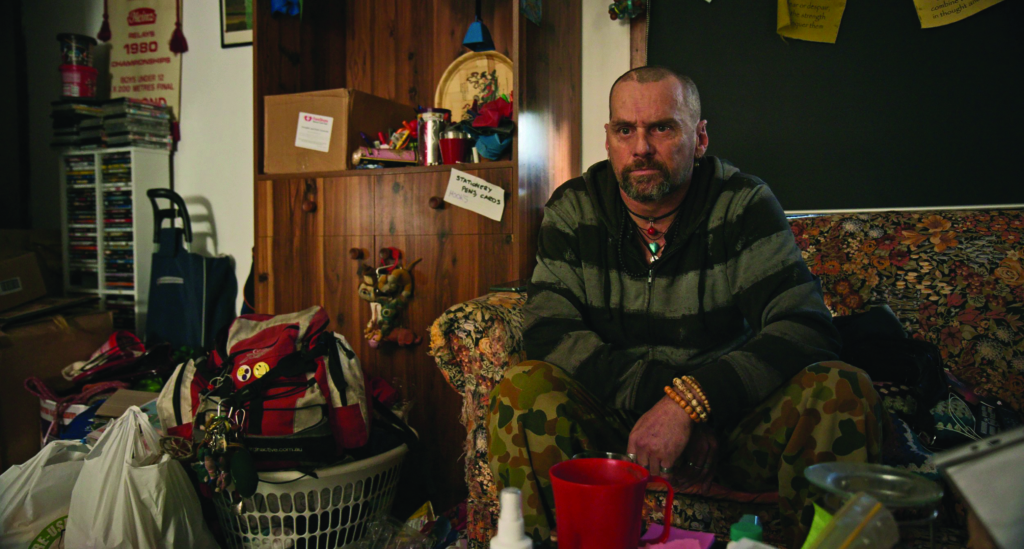
Unfortunately, due to Pankhurst’s escalating lung condition, this is the only job we get to see her attend in person during the film. She laments this situation herself, but takes pride in the connection she maintains with her cleaning crew and her confidence in their professionalism and training. Her insistence on treating clients with dignity and her matter-of-fact way of approaching cleaning tasks is an attitude that is clearly pervasive among the STC staff. As reviewer Ed Travis notes, Pankhurst has trained her staff to ‘change people’s lives and redeem the spaces where trauma has happened’.[7]Ed Travis, ‘SXSW 2022: Clean: Finding Dignity Amidst Humanity’s Shit, Piss, & Viscera’, Cinapse, 19 March 2022, <https://cinapse.co/sxsw-2022-clean-finding-dignity-amidst-humanitys-shit-piss-viscera-77ea67d7244f>, accessed 21 July 2022. Many of the staffers themselves have past issues and life struggles, but find a family-like atmosphere at STC; broadcaster Meshel Laurie recalls Pankhurst telling her that ‘all of her staff had graduated from the school of hard knocks’, and that ‘she preferred hiring people who needed a second chance in life because it meant they were more empathetic human beings’.[8]Meshel Laurie, ‘Partner in Crime: Remembering Sandra Pankhurst, a True Champion of Dignity’, The Sydney Morning Herald, 6 August 2021, <https://www.smh.com.au/culture/books/partner-in-crime-remembering-sandra-pankhurst-a-true-champion-of-dignity-20210729-p58dxy.html>, accessed 10 July 2022. Pankhurst’s own non-judgemental attitude is reflected in how they approach their often onerous work; while they sometimes use humour to let off steam, it’s never at the expense of the client or one another. The unique nature of their occupation makes them ‘quite a special bunch’, in the words of staffer Chris Herbert in the documentary, emphasising the fact that they all care and ‘[have] a heart’.
While the physical safety aspects of the job have vastly improved since Pankhurst began working in trauma cleaning – specialised bio-cleaning certification is now part of employee training, for instance – she also emphasises the need for staff to take care of their own mental health. This is especially true in dealing with cases involving violent crime or suicide. What they see is obviously confronting at times, and Pankhurst says communication is the key to getting a job out of your head. Cleaner Brian Gaciabu explains that he often deliberately avoids news stories pertaining to a job; as a father-to-be, he confides that he finds cases involving children triggering, so the mental processing of his work is important. As Pankhurst points out, clean-ups after traumatic events such as those referred to in the film were traditionally undertaken by victims’ families before specialised services like STC emerged, helping to shield them from that ordeal. It is therefore vital that the process of cleaning up does not itself become a traumatic experience for the workers.
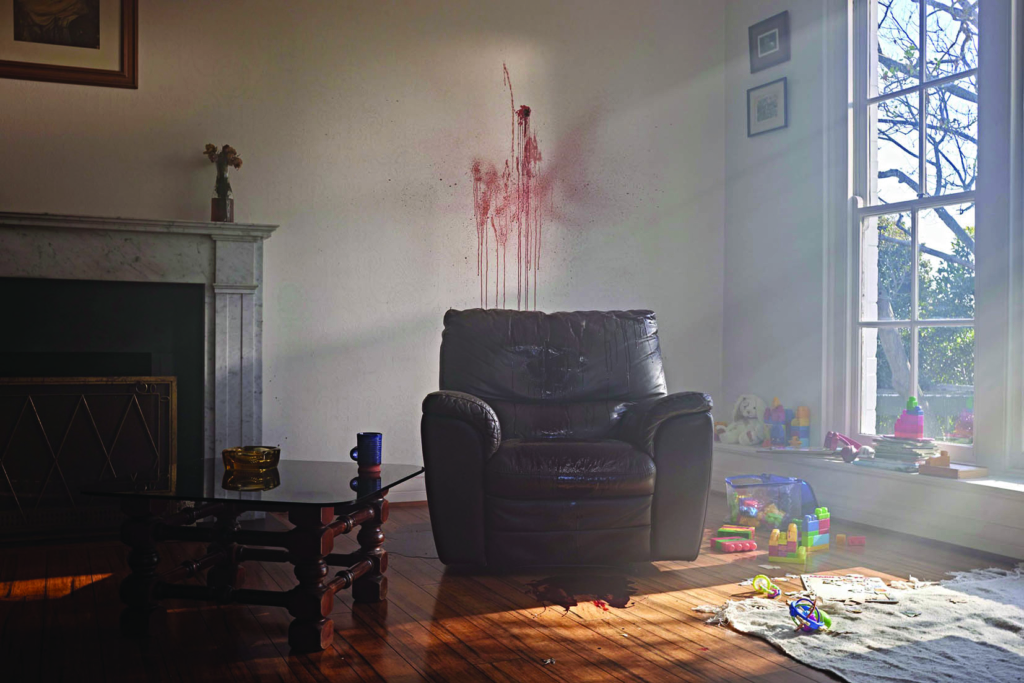
The cleaning of a deceased estate is the second hoarding job depicted in the film. Through STC cleaner Kellie Rosenfield’s interaction with the property’s real estate agent, we see a reflection of the point of view many people might have about hoarding, including disbelief at how a person could live in such conditions for so long. The agent’s voicing of these sentiments, while not inherently disrespectful, highlights how misunderstood this condition is. Rosenfield acknowledges the confronting nature of what we’re shown while leading the documentary crew through the house, but the scene also provides a fascinating insight into how the team approach their work as she breaks down the seemingly insurmountable task of clearing and cleaning the house. She speaks of the shock the family experienced when they discovered that their relative – whom they had always thought of as ‘warm’ and ‘fun’ – lived in such a way, and sympathetically reflects on the circumstances in his life that may have triggered his hoarding habit. Other staffers comment that neighbours are often amazed to discover that the person next door was suffering in this way, as their appearance outside the house tends not to reveal what is inside it.
STC staffer Rod Wyatt knows all too well how close a person can get to a life of hoarding. A talented interior designer and artist, he keeps his home elegant and organised, providing a psychologically necessary contrast to his work. The boxes in his garage tell a different story, however. Although what remains there can in no way be regarded as hoarding, his description of the vast collection of decorative items he disposed of in order to reach this point shows how close he came to having a serious problem himself. It was also what led him to his unexpected but rewarding career change. He muses that hoarding behaviour may be triggered by a range of traumatic events, including loss, financial ruin or childhood experiences of poverty or neglect, resulting in a reluctance to let go of any possessions and an ensuing lack of control over one’s life.
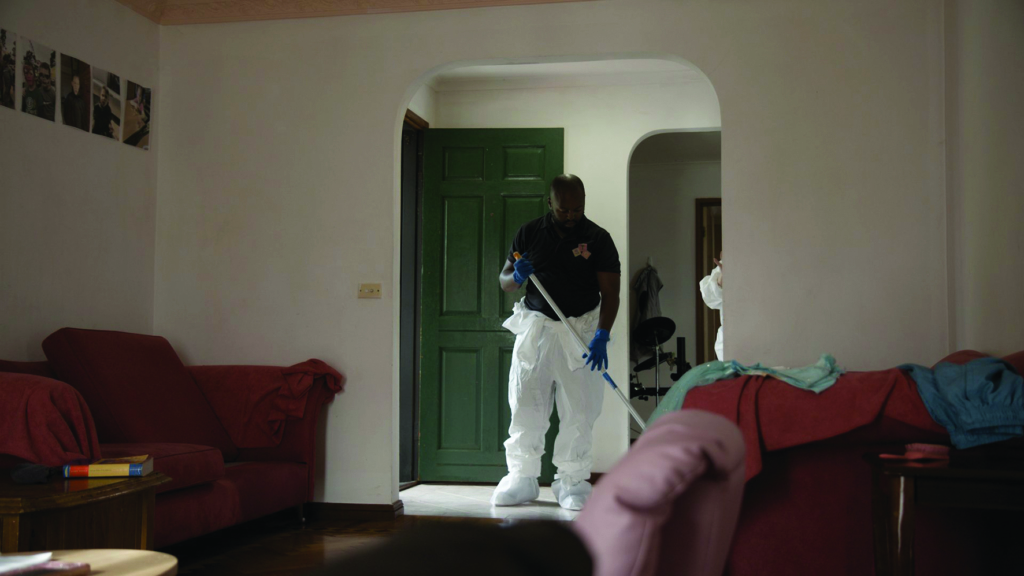
‘We’re all one or two bad decisions away from leading the exact same life,’ Wyatt says about STC’s clients, and Pankhurst echoes his sentiment: ‘It could be you; it could be me; it could be anyone tomorrow. That’s why I don’t judge.’
Pankhurst offers similar revelations about her own early life. After having been shunned by her adoptive family, for much of the day she would be housed alone in a separate building without even a toilet. She continued to suffer physical abuse at the hands of her father, and the neglect and unsanitary living conditions she experienced brought about further physical deterioration, including malnutrition. The choice to clean and organise others’ homes, however, has proven cathartic for her and Wyatt alike. ‘We’re all one or two bad decisions away from leading the exact same life,’ Wyatt says about STC’s clients, and Pankhurst echoes his sentiment: ‘It could be you; it could be me; it could be anyone tomorrow. That’s why I don’t judge.’
Another job shown in the film, in which the crew are required to clear and clean a squalid home belonging to a person suffering from drug addiction, is potentially also quite challenging for viewers. The client in this case, Devon, is present for the clean-up, and delivers a confronting piece to camera about his life and circumstances. The crew interact with him respectfully, despite the grim job of having to dispose of much of the contents of his home; we learn that they have known him for years. Cleaner Chris Herbert looks at the state of the property as a reflection of its resident’s state of mind, inviting us to see beyond the facade of labels and living conditions into Devon’s personal history, particularly in terms of the traumatic personal experiences that led to his addiction and consequent actions. The film reminds us here, as it does throughout, that those whom others might find the hardest to feel empathy or sympathy for are often the most in need of it.
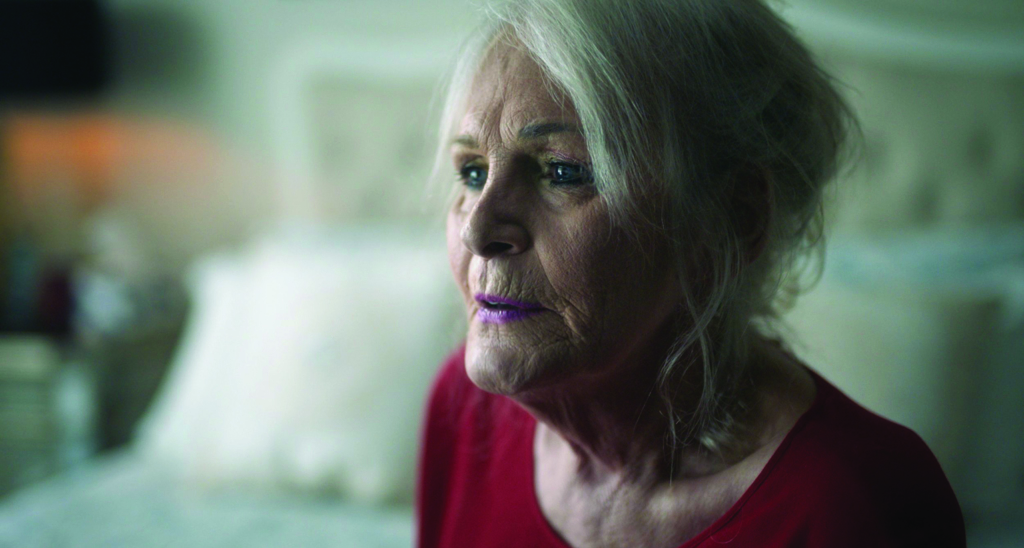
The STC crew are also depicted assisting clients with disabilities or other effects of physical trauma, such as brain injuries, that hinder them from being able to maintain their homes in a hygienic, liveable state. Herbert believes the cleaners’ job goes beyond the physical act of tidying up; rather, they are there to help those who often cannot care for themselves. It’s clear that a close relationship with those clients has developed over the years, and that the cleaners’ warm and non-judgemental approach to the task is appreciated; one client describes the STC crew as ‘a real lifeline for us’. Reviewer Christopher Cross says the film highlights the ‘therapeutic power to what trauma cleaners do’ and that this is ‘evident in those interactions with people who require their services’.[9]Christopher Cross, ‘Trauma Cleaners Get the Spotlight in Clean’, Tilt Magazine,13 March 2022, <https://tilt.goombastomp.com/film/clean-review/>, accessed 24 July 2022.
One of Clean’s final scenes depicts the STC crew cleaning Pankhurst’s own home, as her health has deteriorated to the point where she can no longer perform such tasks herself. It is heartening to see how, in the manner she accepts this situation, she applies the same kindness and dignity to herself as she has to clients in the past. Having been housebound for most of the previous year due to her illness and COVID-19 restrictions, she conveys eagerness about her speaking role at an upcoming Future Women Leadership Summit in Sydney. She is visibly frail, yet retains the sparkle in her eye, and is as polished and elegant as ever. She was to pass away just a few months later, in July 2021.
Pankhurst expresses a desire in Clean to be remembered ‘as a kind human being – nothing more, nothing less’, yet she was so many other things over the course of her life too: trauma cleaner, transgender woman, child of forced adoption, abuse survivor, sex worker, public speaker; someone whose life was almost too full to capture on the screen. ‘We’re all fractured souls,’ she observes in McLeod’s documentary. ‘We all need to be loved and to be treated with respect’. By allowing us to meet some of those fractured souls, Clean invites us to approach them, as Pankhurst did, with enough humanity to see both sides, eschew judgement and perhaps consider our own fragility.
Endnotes
| 1 | Sarah Krasnostein, The Trauma Cleaner: One Woman’s Extraordinary Life in Death, Decay & Disaster., Text Publishing, Melbourne, 2019. |
|---|---|
| 2 | Lachlan McLeod, ‘Director’s Statement’, Walking Fish Productions & Goodthing Productions, Clean press kit, 2022, p. 12. |
| 3 | Lachlan McLeod, quoted in Jason Whyte, ‘SXSW 2022 Interview – Clean Director Lachlan McLeod’, Get Reel Movies,11 March 2022, <https://getreelmovies.com/sxsw-2022-interview-clean-director-lachlan-mcleod/>, accessed 24 July 2022. |
| 4 | Almudena Toral, ‘Documentary Films That Explore Trauma – and Make Space for Healing’, TED, 24 May 2021, <https://www.ted.com/talks/almudena_toral_documentary_films_that_explore_trauma_and_make_space_for_healing>, accessed 10 July 2022. |
| 5 | Michael Kyrios, ‘When Stuff Gets in the Way of Life: Hoarding and the DSM-5’, The Conversation,24 October 2012, <https://theconversation.com/when-stuff-gets-in-the-way-of-life-hoarding-and-the-dsm-5-10074>, accessed 21 July 2022. |
| 6 | See Melissa Norberg & Jessica Grisham, ‘When Possessions Are Poor Substitutes for People: Hoarding Disorder and Loneliness’, The Conversation,12 June 2018, <https://theconversation.com/when-possessions-are-poor-substitutes-for-people-hoarding-disorder-and-loneliness-97784>, accessed 21 July 2022 |
| 7 | Ed Travis, ‘SXSW 2022: Clean: Finding Dignity Amidst Humanity’s Shit, Piss, & Viscera’, Cinapse, 19 March 2022, <https://cinapse.co/sxsw-2022-clean-finding-dignity-amidst-humanitys-shit-piss-viscera-77ea67d7244f>, accessed 21 July 2022. |
| 8 | Meshel Laurie, ‘Partner in Crime: Remembering Sandra Pankhurst, a True Champion of Dignity’, The Sydney Morning Herald, 6 August 2021, <https://www.smh.com.au/culture/books/partner-in-crime-remembering-sandra-pankhurst-a-true-champion-of-dignity-20210729-p58dxy.html>, accessed 10 July 2022. |
| 9 | Christopher Cross, ‘Trauma Cleaners Get the Spotlight in Clean’, Tilt Magazine,13 March 2022, <https://tilt.goombastomp.com/film/clean-review/>, accessed 24 July 2022. |
